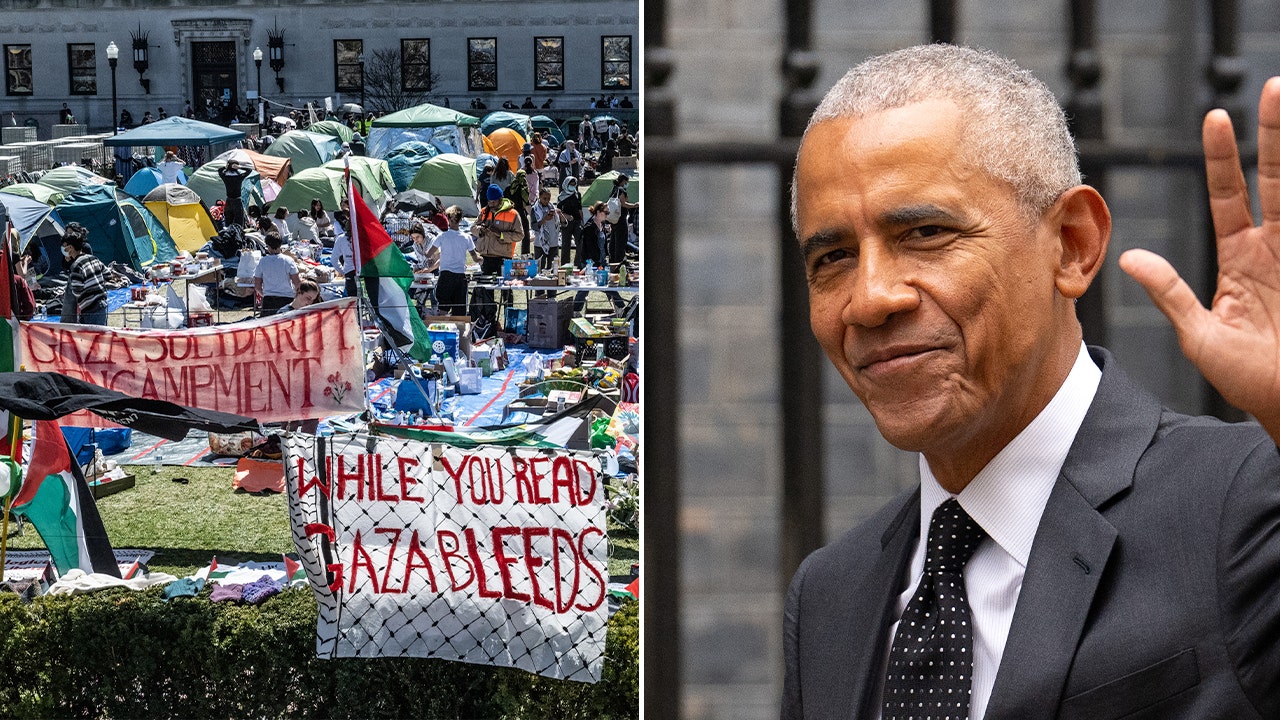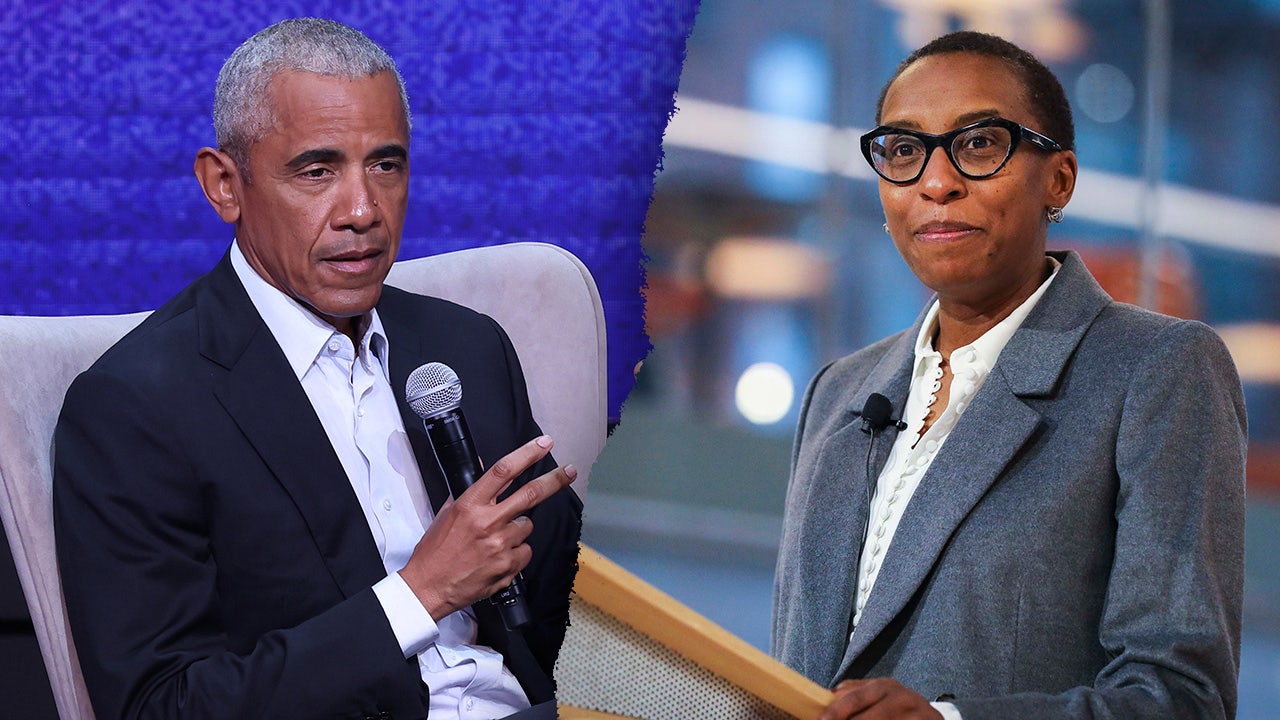Is Obama Antisemitic? Fox Anchor Asks – The Real Story Uncovered
Let’s cut to the chase here, folks. The question “Is Obama Antisemitic?” has been buzzing around like a swarm of bees lately, especially after a Fox News anchor brought it up. Now, before we dive headfirst into this hot topic, let’s take a deep breath and unpack what’s really going on. This isn’t just about headlines; it’s about understanding the context, the history, and the truth behind the noise. So, grab your coffee, sit tight, and let’s get into it.
This is one of those moments where we need to separate fact from fiction. Barack Obama, the 44th President of the United States, has been at the center of countless debates, accusations, and controversies. But is he really antisemitic? Or is this just another talking point designed to stir the pot? We’re going to break it down for you, piece by piece, so you can form your own opinion.
Before we go any further, let’s address the elephant in the room. The Fox News anchor’s question might have sparked outrage, but it’s important to understand why it was asked and what it means in the broader context of politics, media, and public perception. Stick with us as we explore the roots of this debate, the evidence on both sides, and what it all means for the future of U.S.-Israel relations.
Read also:Remembering Mark Healy How Roseannes Reboot Honors Glenn Quinns Legacy
Understanding the Context: What Led to This Question?
Alright, let’s rewind a little. The question “Is Obama Antisemitic?” didn’t just pop out of nowhere. It’s rooted in a complex web of historical events, political decisions, and media narratives. To truly understand the context, we need to look at Obama’s tenure as president, his policies toward Israel, and how those policies were perceived by different groups.
For starters, Obama’s administration was marked by several key decisions that sparked controversy among pro-Israel advocates. One of the most notable was the Iran nuclear deal, which many saw as a threat to Israel’s security. Then there was the U.N. Security Council Resolution 2334, which criticized Israeli settlements in the West Bank. These moves didn’t sit well with some segments of the Jewish community and led to accusations of bias.
But here’s the thing: context matters. Critics argue that Obama’s actions were part of a broader effort to promote peace in the Middle East, while supporters point out that his administration provided unprecedented levels of military aid to Israel. So, is it fair to label him as antisemitic based on these decisions? Let’s dig deeper.
Obama’s Policies Toward Israel: A Closer Look
Let’s break it down. During his presidency, Barack Obama allocated over $38 billion in military aid to Israel over a ten-year period. That’s a record-breaking amount, folks. He also maintained strong diplomatic ties with the Israeli government, despite occasional disagreements. But why did some people still see him as antisemitic?
- Some critics argue that Obama’s criticism of Israeli settlement expansion was disproportionate and one-sided.
- Others point to his administration’s reluctance to intervene in certain U.N. resolutions as evidence of bias.
- Pro-Israel advocates were particularly upset about the Iran nuclear deal, which they saw as a direct threat to Israel’s national security.
However, supporters of Obama counter these claims by highlighting his administration’s unwavering commitment to Israel’s defense. They argue that his policies were aimed at achieving a lasting peace in the region, not undermining Israel’s security.
Debunking the Antisemitism Accusation
Now, let’s tackle the elephant in the room: is Obama antisemitic? The short answer is no. But let’s back that up with some facts. Antisemitism is defined as hostility or prejudice against Jewish people, and there’s simply no evidence to suggest that Obama harbors such sentiments. In fact, his track record tells a different story.
Read also:Tatum Oneal Opens Up About Life Love And Challenges
Throughout his career, Obama has consistently spoken out against antisemitism. He’s visited Holocaust memorials, condemned anti-Jewish violence, and emphasized the importance of Israel’s existence as a Jewish state. In his memoir, “A Promised Land,” he even reflects on his personal experiences with Jewish friends and colleagues, describing them as formative influences on his worldview.
But why do some people still believe he’s antisemitic? Part of it has to do with perception. Critics often conflate policy disagreements with personal animosity, which can lead to misunderstandings. It’s crucial to distinguish between political decisions and personal beliefs when evaluating someone’s character.
The Role of Media in Shaping Public Perception
Here’s where things get interesting. The media plays a huge role in shaping public perception, and the way stories are framed can have a significant impact on how people interpret events. When a Fox News anchor asks, “Is Obama Antisemitic?” it grabs attention, but it also risks oversimplifying a complex issue.
Media outlets often prioritize sensational headlines over nuanced analysis, and this can lead to misunderstandings. For example, when Obama criticized Israeli settlement expansion, some outlets portrayed it as an attack on Israel itself, rather than a policy disagreement. This kind of framing can fuel misconceptions and reinforce stereotypes.
It’s important for viewers and readers to critically evaluate the sources they consume and seek out multiple perspectives before forming an opinion. In today’s hyperpartisan media landscape, that’s easier said than done, but it’s essential for fostering informed discourse.
Barack Obama: A Biographical Overview
Before we move on, let’s take a moment to understand who Barack Obama is. Born on August 4, 1961, in Honolulu, Hawaii, Obama grew up in a multicultural environment that shaped his worldview. He attended Columbia University and later earned a law degree from Harvard, where he became the first Black president of the Harvard Law Review.
His political career began in the Illinois State Senate, followed by a stint in the U.S. Senate, before he was elected as the first African American president of the United States in 2008. Throughout his presidency, Obama faced both admiration and criticism, but his legacy as a leader who championed progressive values and global cooperation remains undeniable.
Barack Obama’s Biodata
| Full Name | Barack Hussein Obama II |
|---|---|
| Date of Birth | August 4, 1961 |
| Place of Birth | Honolulu, Hawaii |
| Education | Columbia University, Harvard Law School |
| Occupation | Lawyer, Author, Politician |
| Spouse | Michelle Obama |
Key Moments in U.S.-Israel Relations Under Obama
Let’s talk about some of the key moments that defined U.S.-Israel relations during Obama’s presidency. These events are crucial for understanding the context of the antisemitism accusations:
- The Iran Nuclear Deal (2015): This landmark agreement aimed to prevent Iran from developing nuclear weapons in exchange for lifting economic sanctions. While it was praised by many as a diplomatic victory, it was strongly opposed by Israeli Prime Minister Benjamin Netanyahu, who saw it as a threat to Israel’s security.
- U.N. Security Council Resolution 2334 (2016): This resolution condemned Israeli settlement activity in the West Bank and East Jerusalem. The Obama administration abstained from vetoing the resolution, which angered many pro-Israel advocates.
- Record Military Aid to Israel: Despite these controversies, Obama’s administration provided Israel with over $38 billion in military aid over a ten-year period, the largest such package in history.
These moments highlight the complexity of U.S.-Israel relations under Obama. While there were disagreements, there was also a strong commitment to Israel’s security and well-being.
What Do the Experts Say?
When it comes to questions like “Is Obama Antisemitic?” it’s always a good idea to consult the experts. Academics, historians, and political analysts have weighed in on this topic, and their perspectives offer valuable insights.
For example, Professor John Mearsheimer of the University of Chicago has argued that Obama’s policies toward Israel were driven by a desire to achieve a two-state solution, not by any personal animosity toward Jewish people. Similarly, former Israeli Ambassador to the U.S. Michael Oren has described Obama as a “true friend” of Israel, despite occasional policy disagreements.
These expert opinions help to contextualize the debate and provide a more balanced view of Obama’s legacy in U.S.-Israel relations.
How Do Jewish Communities View Obama?
It’s also worth noting how Jewish communities themselves view Obama. While there are certainly differing opinions, many Jewish leaders and organizations have praised Obama for his support of Israel and his efforts to combat antisemitism.
For example, the Anti-Defamation League (ADL) has consistently commended Obama for his strong stance against antisemitism and his commitment to Israel’s security. Similarly, the American Israel Public Affairs Committee (AIPAC) has acknowledged Obama’s contributions to strengthening U.S.-Israel ties, even while expressing concerns about specific policies.
This diversity of perspectives within the Jewish community underscores the complexity of the issue and highlights the need for nuanced discussions.
The Broader Implications: Why This Matters
So, why does this question matter? Beyond the specific case of Obama, the debate about antisemitism in politics has broader implications for how we discuss and address issues of bias and prejudice. Accusing someone of antisemitism is a serious charge, and it’s important to ensure that such accusations are based on evidence rather than perception or politics.
At the same time, this conversation provides an opportunity to educate people about the realities of antisemitism and the importance of combating it. By fostering open and honest dialogue, we can work toward a more inclusive and understanding society.
But let’s not forget the importance of context. In a world where information is often oversimplified or distorted, it’s crucial to approach complex issues with nuance and critical thinking. That’s how we move forward as a society.
Conclusion: What Have We Learned?
As we wrap up this discussion, let’s recap what we’ve learned. The question “Is Obama Antisemitic?” is a complex one that requires a nuanced understanding of history, politics, and media. While Obama’s policies toward Israel have sparked controversy, there’s simply no evidence to suggest that he harbors antisemitic sentiments.
Instead, his record shows a commitment to Israel’s security and well-being, as well as a strong stance against antisemitism. Critics may disagree with his policies, but that doesn’t mean they reflect personal animosity toward Jewish people.
So, what can you do? First, educate yourself on the issues. Read widely, seek out diverse perspectives, and critically evaluate the sources you consume. Second, engage in respectful dialogue with others, even when you disagree. And finally, stand up against antisemitism and all forms of prejudice whenever you encounter them.
Now it’s your turn. What do you think about this topic? Leave a comment below, share this article with your friends, or explore some of our other content on related subjects. Together, we can foster a more informed and compassionate world.
Table of Contents
- Understanding the Context: What Led to This Question?
- Obama’s Policies Toward Israel: A Closer Look
- Debunking the Antisemitism Accusation
- The Role of Media in Shaping Public Perception
- Barack Obama: A Biographical Overview
- Barack Obama’s Biodata
- Key Moments in U.S.-Israel Relations Under Obama
- What Do the Experts Say?
- How Do Jewish Communities View Obama?
- The Broader Implications: Why This Matters
Article Recommendations


